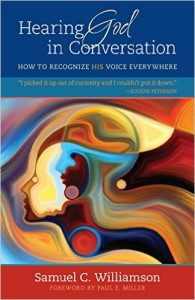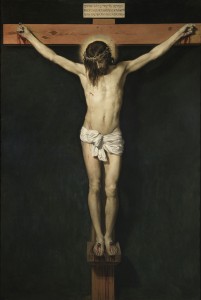[I wrote a new devotional book: “Heart Journey 2: Going Forward in Love.” It was published in November of 2017. Here’s an excerpt!]
Day 14
Greet the Lord as one who is dependent upon His love today.
Settle down in the presence of the One whose essence is Love. And you are His most prized possession. You have been bought for a very high price and He wants to meet with you! As you address the Lord today, express your heart to Him. No matter if you are feeling awesome or defeated or neither. Share with Him how you feel.
Read and reflect on the truth of God’s message for you.
The Apostle John wrote this letter to all people who were following Jesus. In some ways, it his gleanings from spending so much time with Jesus and being at His side most of the time. John is sharing from his personal wealth, guided by the Holy Spirit to help us live in the complexities of life and relationships. You can see John’s tenderheartedness in the language he uses to talk about the Lord and us.
Beloved, let us love one another, for love is from God, and whoever loves has been born of God and knows God. Anyone who does not love does not know God, because God is love. In this the love of God was made manifest among us, that God sent his only Son into the world, so that we might live through him. In this is love, not that we have loved God but that he loved us and sent his Son to be the propitiation for our sins. Beloved, if God so loved us, we also ought to love one another. No one has ever seen God; if we love one another, God abides in us and his love is perfected in us.
By this we know that we abide in him and he in us, because he has given us of his Spirit. And we have seen and testify that the Father has sent his Son to be the Savior of the world. Whoever confesses that Jesus is the Son of God, God abides in him, and he in God. So we have come to know and to believe the love that God has for us. God is love, and whoever abides in love abides in God, and God abides in him. By this is love perfected with us, so that we may have confidence for the day of judgment, because as he is so also are we in this world. There is no fear in love, but perfect love casts out fear. For fear has to do with punishment, and whoever fears has not been perfected in love. We love because he first loved us. If anyone says, “I love God,” and hates his brother, he is a liar; for he who does not love his brother whom he has seen cannot love God whom he has not seen. And this commandment we have from him: whoever loves God must also love his brother. (1 John 4:7-21 ESV)
Read the passage one more time and write down a thought or two that particularly resonates with your heart.
You might want to reflect on just a few truths as you consider what this means for you.
You might want to focus your reading on a phrase at a time and read them a couple of times. Let’s do this together.
Two truths struck me. The first is “abide.” John tells us, “Whoever confesses that Jesus is the Son of God, God abides in him, and he in God. So we have come to know and to believe the love that God has for us. God is love, and whoever abides in love abides in God, and God abides in him.” If we abide in God, we are following and obeying Him. It has to do with respect and trust. There is a time aspect that shows up when abide is used as an adjective. God’s abiding love lasts for a very, very long time. So, we have this parallel in John’s letter that if we confess that we trust Jesus then God will stay with us forever. If we abide with Him, He will abide with us.
How does that make you feel toward God?
Do you feel pressure or anxiety? It’s possible you may feel both of those emotions. Take your feelings to God and see what He says.
The second truth that pushed me was the precept that it’s not about a hollow love or abiding. John is very clear that we can’t say, “Hey, I love God, but pretty much everybody else can take a hike!” If we say we love God and abide in Him, then we’re going to love our brothers and sisters. We’re going to take on the same love that God has for people. That’s how we show our “abiding” and “loving.”
This is a bit more difficult. I don’t naturally love everybody. How about you?
Let’s talk to God about that, too.
Going forward in love
As you can see, this passage really brings the theme of these reflections home. “Going Forward in Love” is our mission. We don’t want to go forward pushing our own agenda and running over people. There’s no proof of our faith in Jesus in that style.
Let’s ask the Lord who needs our love today. We need His love, but who needs our love.
Lord, help us to abide and love as we go forward!





